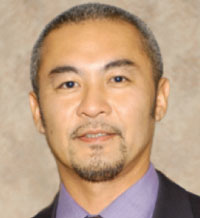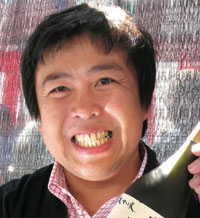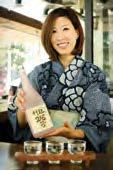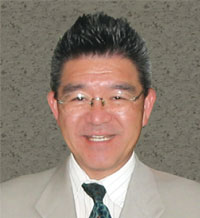Manyo Sake
Sake brewing technology advanced significantly in the “Manyo Period (629-759)” from the Asuka Period (592~710) into the Nara Period (710-784).
The phrase “Purified Sake” was written on a mokkan (narrow, long, thin pieces of wood strung together to write on in ancient times) that emerged from the Nara Period (710-784).
“Sake” during this period is thought to be of entirely different quality from modern-day sake. Fermentation-mash was squeezed in a bag, supernatant, and clear; thus referred to by this term.
Of course, such sake was enjoyed only among a small population of aristocrats, while the general population drank cloudy sake.
Sake for the Masses
The year after the Taika Reform (645), “alcohol prohibition” targeting farmers was officially announced.
“Alcohol prohibition” repeatedly announced since between the 8th ~ early 9th centuries indicate farmers also had numerous opportunities to consume cloudy alcohol, homemade or purchased at the market.
Most of the poor consumed “Kasu yuzake” to survive the cold, as described in poems by Okura Yamanoue in “Manyoshu” (“Collection of Ten Thousand Leaves,” Japan’s oldest anthology of tanka poems).
*“Kasu Yuizake”: A beverage consisting of sake lees dissolved in water, high in yeast content and very nutritious
万葉の酒
飛鳥から奈良朝に至る「万葉の時代」には、酒造りの技術もかなり進歩した。
平城京跡から出土した木簡には「清酒(すみざけ)」「浄酒(すみざけ)」の語がある。
この時代の「清酒」は、現在の清酒とは全く異なった酒質と思われるが、もろみを袋でしぼったり、上澄した酒で澄んでいたため、この名で呼ばた。
もちろん、このような澄んだ酒は一部の上流貴族の飲物で、人々は濁った酒を飲んでいた。
民の酒
大化の改新(645) の翌年、農民に対する「魚酒禁令(ぎょしゅきんしれい)」が初めて公布さた。
その後8~9世紀初期までに「群酒禁止令」と共に「魚酒禁令」が、幾度となく出されていたことより、農民も酒を飲む機会が度々あったことが推察さる。
彼等は、手造りや市の濁酒(にごりざけ)を買って飲みました。
また、大半の貧しい人々のなかには「万葉集」の山上憶良(やまのうえおくら)の歌のように「糟湯酒(かすゆざけ)」を飲んで、寒きをしのいだ人もありました。
The phrase “Purified Sake” was written on a mokkan (narrow, long, thin pieces of wood strung together to write on in ancient times) that emerged from the Nara Period (710-784).
“Sake” during this period is thought to be of entirely different quality from modern-day sake. Fermentation-mash was squeezed in a bag, supernatant, and clear; thus referred to by this term.
Of course, such sake was enjoyed only among a small population of aristocrats, while the general population drank cloudy sake.
Sake for the Masses
The year after the Taika Reform (645), “alcohol prohibition” targeting farmers was officially announced.
“Alcohol prohibition” repeatedly announced since between the 8th ~ early 9th centuries indicate farmers also had numerous opportunities to consume cloudy alcohol, homemade or purchased at the market.
Most of the poor consumed “Kasu yuzake” to survive the cold, as described in poems by Okura Yamanoue in “Manyoshu” (“Collection of Ten Thousand Leaves,” Japan’s oldest anthology of tanka poems).
*“Kasu Yuizake”: A beverage consisting of sake lees dissolved in water, high in yeast content and very nutritious
万葉の酒
飛鳥から奈良朝に至る「万葉の時代」には、酒造りの技術もかなり進歩した。
平城京跡から出土した木簡には「清酒(すみざけ)」「浄酒(すみざけ)」の語がある。
この時代の「清酒」は、現在の清酒とは全く異なった酒質と思われるが、もろみを袋でしぼったり、上澄した酒で澄んでいたため、この名で呼ばた。
もちろん、このような澄んだ酒は一部の上流貴族の飲物で、人々は濁った酒を飲んでいた。
民の酒
大化の改新(645) の翌年、農民に対する「魚酒禁令(ぎょしゅきんしれい)」が初めて公布さた。
その後8~9世紀初期までに「群酒禁止令」と共に「魚酒禁令」が、幾度となく出されていたことより、農民も酒を飲む機会が度々あったことが推察さる。
彼等は、手造りや市の濁酒(にごりざけ)を買って飲みました。
また、大半の貧しい人々のなかには「万葉集」の山上憶良(やまのうえおくら)の歌のように「糟湯酒(かすゆざけ)」を飲んで、寒きをしのいだ人もありました。






